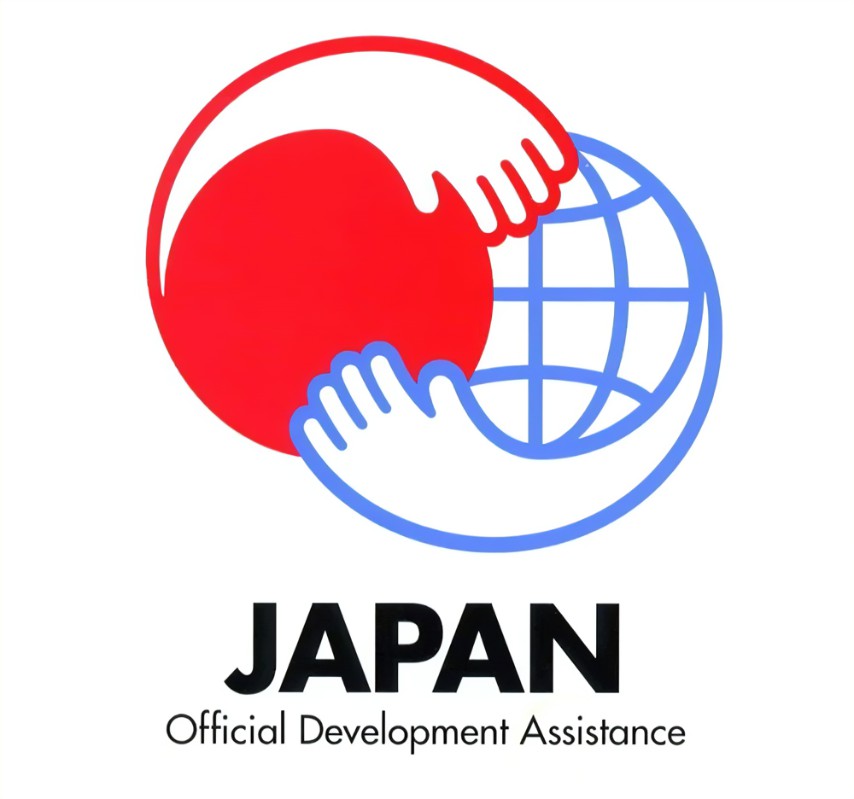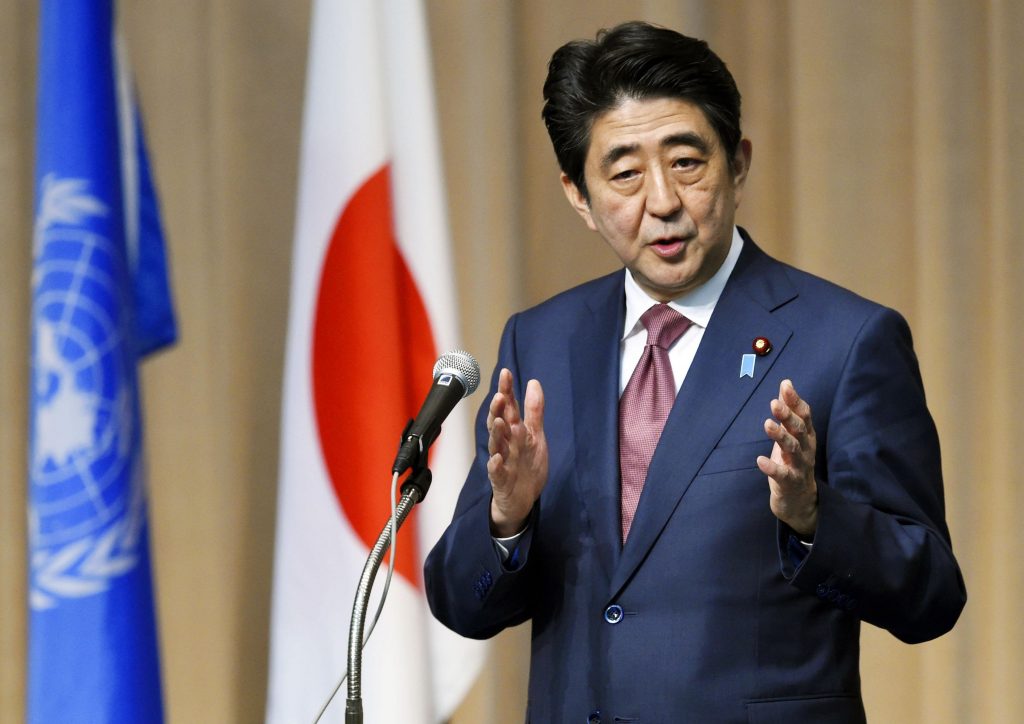Author: Sun Weiqing
On June 9, the Japanese government issued a revised version of the "Development Cooperation Charter", emphasizing that Japan will mobilize development assistance resources to maintain security and the rule of law. Chain Resilience and Digital Transformation.
Total words2224About5minutes
On June 9, the Japanese government issued a revised version of the "Development Cooperation Charter", focusing on "Japan's contribution to the sustainable development of a free and open world." The revised Charter emphasizes that Japan will mobilize development assistance resources to maintain security and the rule of law, and is committed to shaping an international environment favorable to Japan in terms of peace and security as well as economic growth. The revised "Charter" states that Japan's overseas development cooperation will prioritize the response to climate change, the food and energy crises caused by the Russia-Ukraine war, strengthening maritime security, supply chain resilience and digital transformation.
Japan's Development Cooperation Charter
In 1992, the Japanese government promulgated the first "Official Development Assistance Charter" (ODA Charter), which stipulated the basic policies and principles of Japan's foreign aid. The 1992 version of the "Charter" attached great importance to environmental protection, emphasized that aid should not be used for military purposes, paid attention to military expenditures of recipient countries, and urged recipient countries to realize democratization, protect human rights and establish a market economic system.
In 2003 and 2015, the Japanese government revised the Charter twice. The 2003 revision added new concepts such as "human security" and "peace building", emphasized Japan's security and prosperity on the basis of common values such as humanitarianism, and proposed to increase the strategic value, flexibility, transparency and efficiency of development assistance, and Strengthen broad participation from all walks of life in Japan, popularize development education, information disclosure, and strengthen public relations.
In 2015, the Shinzo Abe government revised the Charter again and renamed the Official Development Assistance Charter to the Development Cooperation Charter. The 2015 revision emphasizes that Japan should play a leading role in supporting developing countries to reduce and respond to disaster risks, adapt to and mitigate climate change, and for the first time allows foreign aid to be used for non-war military purposes to maintain global peace. "The prosperity of the Japanese people" is clearly linked. The revision highlights the role of the private sector in development cooperation and encourages private sector participation in international development cooperation.
The revision of the Charter in 2023 focuses on marine and economic security and national interests, and at the same time proposes to help developing countries cope with common challenges facing mankind such as climate change and global health.
What are the four basic policies proposed in the revised Charter?
Prior to this revision, the Charter stipulated three basic policies for Japan's development cooperation, namely, to contribute to peace and prosperity through cooperation for non-military purposes; to share universal values and realize a peaceful and secure society; and to strive to resolve Global challenges and building a sustainable and resilient international society. The 2023 version of the Charter revises this and proposes four new basic policies to guide Japan's development cooperation.
One is to contribute to peace and prosperity.Japan reaffirms its commitment to help address development challenges faced by developing countries through non-military cooperation and to contribute to ensuring peace and prosperity in the international community.
The second is human security in the new era.Japan continues to use human security as a guiding principle, focusing on "investing in people" and "investing in communities" to support individual dignity and resilience, and to strengthen solidarity among actors.
The third is to jointly create social value with developing countries.Japan plans to support the self-help efforts of developing countries, help them achieve self-reliant development, create and generate new value together with partner countries through dialogue and cooperation, and hopes that this new value will bring solutions to Japan's own economic and social challenges.
The fourth is to promote, disseminate and implement international rules and guidelines based on the principles of inclusiveness, transparency and fairness.Japan believes that common rules and guidelines provide an important common basis for effective development cooperation and coordination by the international community. To this end, Japan will take the lead in disseminating and implementing rules and guidelines for international development cooperation based on inclusiveness, transparency, and fairness.

(Japan MOFA/Photo)
What priority policy areas are identified in this revision?
Based on the four basic policies, the 2023 version of the Development Cooperation Charter identifies three priority policy areas.
The first is high-quality growth and poverty eradication.The revised "Charter" states that Japan plans to strive to achieve inclusive growth, enhance debt sustainability and climate resilience, and address challenges such as digital transformation and food and energy security through measures such as economic diversification and enhanced resilience.
The second is peace and stability.The revised Charter states that Japan will continue to support important issues such as strengthening governance, humanitarian assistance and peacebuilding, and maritime security capacity building, and maintain and strengthen a free and open international order, especially the "Free and Open Indo-Pacific Strategy (FOIP )".
The third is to deal with increasingly complex and serious global issues.The revised Charter emphasizes that Japan will address challenges such as climate change, health, disaster prevention and education through international cooperation, promote the achievement of sustainable development goals, and commit to contributing to the international agenda beyond 2030.

(Japan Times/Photo)
How is international development cooperation implemented?
Follow the three guidelines of solidarity, offer-type cooperation and mechanism evaluation.The Japanese government plans to focus on developing countries, mobilize diverse resource platforms, and realize "co-creation" in solidarity with multi-stakeholders including the private sector, international organizations, public financial institutions, other donors and civil society ( co-creation) to expand ODA financing. The Japanese government also plans to make use of Japan's own advantages and experience to provide aid recommendations to recipient countries through proactive cooperation, and further strengthen the strategic application of official development assistance. In addition, the Japanese government will evaluate mechanisms such as flexible financial cooperation and improve emergency assistance.
Identify implementation principles to guide development cooperation.On the basis of the four existing principles of democracy and human rights in recipient countries, demilitarization, attention to recipient country expenditures, and environmental impact of development projects, this revision adds two new principles. One is debt sustainability. In order to promote the medium- and long-term sustainable development of developing countries, Japan will give full consideration to promoting the sustainability of socio-economic development in developing countries through development cooperation. The second is to promote an inclusive society including gender mainstreaming and ensure equity. Japan plans to mainstream a gender perspective at all stages of development cooperation, with due consideration to ensuring equity, in order to promote a diverse and inclusive society, without social disadvantages including women, children, persons with disabilities, the elderly, ethnic minorities and indigenous people All people, including groups, can equally participate in development.
Strengthen the framework and foundation for the delivery of development assistance.Japan will be “being mindful” of raising ODA spending to its target of 0.7% of gross national income (GNI), while being aware of its fiscal position. To this end, Japan will expand official development assistance in various ways and strive to carry out development cooperation with all parties more effectively. Japan will improve cooperation among relevant government departments and agencies, coordinate the planning and policy formulation of development cooperation centered on the Ministry of Foreign Affairs (MOFA), implement projects such as the Japan International Cooperation Agency (JICA) in accordance with policies, and further strengthen policy and implementation consistency between.
Japan will also continue to strengthen the human capacity of development cooperation-related government departments and implementing agencies with a view to cultivating and reserving human resources for new development challenges such as green transformation, public finance and mobilizing private sector funds. In addition, Japan will support the development of human resources with specialized knowledge such as consultants, universities and research institutions, private companies, and civil society, and strive to establish an international human resource system and mechanism so that these human resources can play an active role in Japan and abroad. In addition, Japan will increase support for policy research and cooperation and strengthen Japan's knowledge base in the field of development cooperation to support and guide international discussions in the field of development cooperation such as international rule-making.
The Japanese government believes that public understanding and support are key to high-quality development cooperation. In terms of information disclosure, overseas public relations, and development of cooperative education, the Japanese government will cooperate with local governments and JICA, and use JICA's domestic offices to provide the public with clear information and explain in detail the significance, results, and benefits of development cooperation. Development cooperation is lauded in the international community. At the same time, Japan will widely and timely disclose the implementation and evaluation information of development cooperation activities to the public, and actively carry out overseas public relations activities to promote the international community, including developing countries, to better understand and understand Japan's development cooperation and its contribute.
The revised Charter states that "the international community is at a historic turning point and is facing complex crises", with global challenges such as climate change, the new crown epidemic, wars and conflicts continuing to worsen. Japan hopes to cooperate with recipient countries as an equal partner to create social value and promote a common growth cycle and a rule-based, free and open international order. Some experts believe that the revision of the charter is an important political legacy of former Prime Minister Shinzo Abe, and it is expected to promote the policy direction of Japan's official development cooperation in the next few years and shape Japan's international geopolitical and geostrategic environment.
references:
https://www.mofa.go.jp/files/100514368.pdf
https://donortracker.org/policy_updates?policy=japan-revises-development-cooperation-charter

All rights reserved, please indicate the source when citing.
